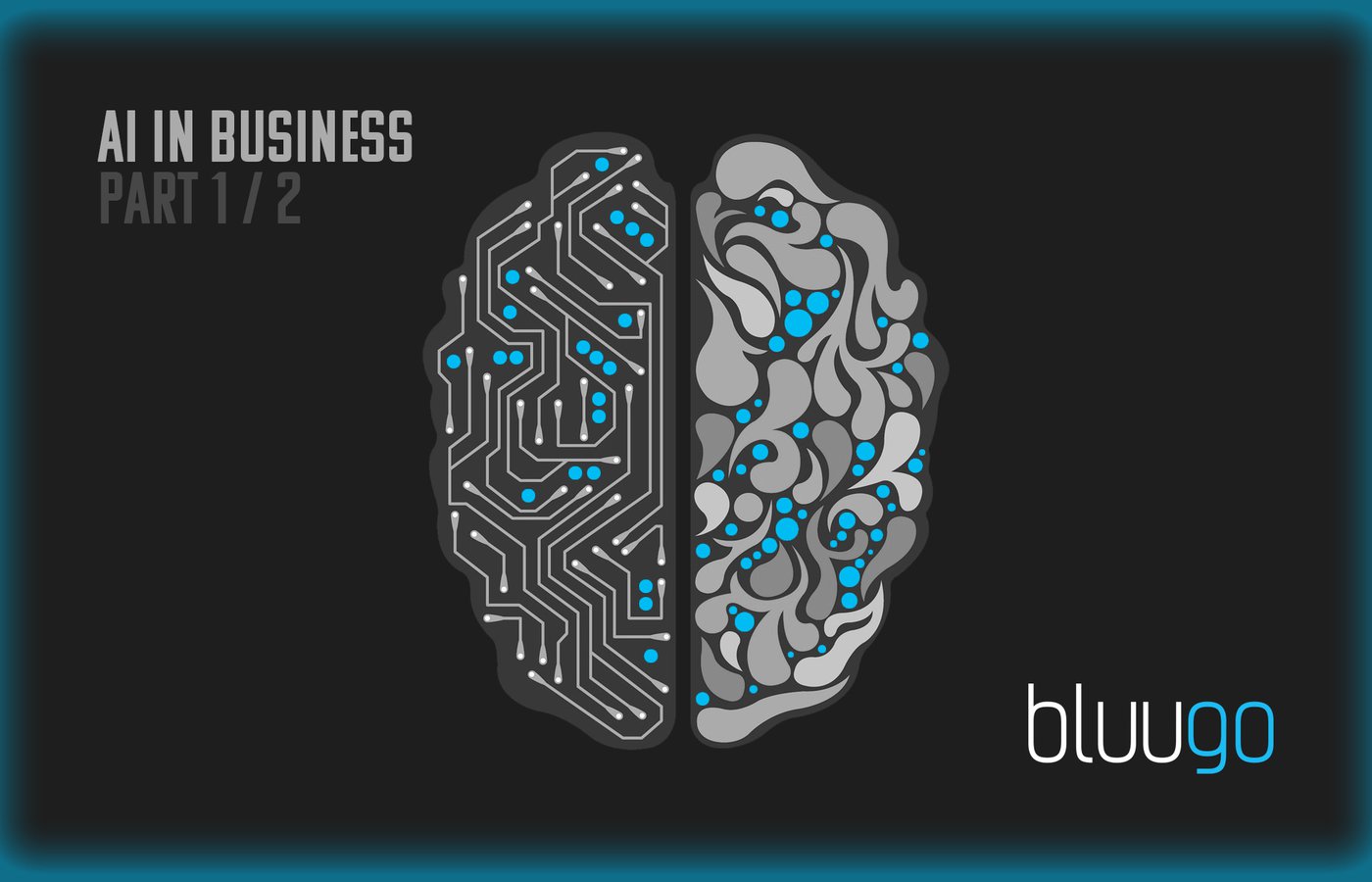
Utilizing AI in business – how to get started?
Artificial Intelligence is quickly reshaping the foundations of the business world, and providing companies many non-traditional ways to create added value automatically – but how to get started with all this? In the first part of our AI blog series, we go through some of the basic topics of utilizing AI in business applications. If you are interested in AI and its possibilities, this is a great introduction to the subject!
Artificial intelligence is reshaping the foundations of the business world
In today’s tech-driven world, none of us can avoid interacting with Artificial Intelligence, or AI, in our everyday lives. Even though the presence of AI can often be difficult to see, it is constantly affecting a multitude of things in both our personal lives and work.
Where most of our experiences with AI come from the consumer side, it is still easy to understand the great potential it offers in B2B sectors like logistics, manufacturing, or customer service. Every B2B company should be carefully thinking about how AI can help them to…
- Offer better services
- Produce better products
- Streamline their processes
Many restrictions that are considered as unchangeable laws of nature can actually be completely removed with clever use of AI. Instead of stiff, traditional processes where people execute tasks step by step with supervisor guiding the processes, things can be done way more efficiently with “intelligent” algorithms. This can raise productivity to levels which are not deemed possible with the traditional methods. In a nutshell, the concept can be described like this:
Automation of processes & decision-making + intelligent algorithms = automatic value creation
When you remove the restrictions of traditional processes from the equation, everything happens faster and the significance of factors like resources and time diminishes.
Let’s use the manufacturing industry as an example, where the utilization of AI and Machine Learning have created significant improvements to Suppy Chain Management, Maintenance Processes, and Inventory Management. When companies can e.g. predict upcoming machine failures well in advance with AI and Machine Learning, they can predictively plan necessary maintenance actions. This raises the machines’ efficiency, prolongs their lifecycles, and prevents critical machine failures which can lead to costly down-time.
One of the most crucial things in utilizing AI in your business, is to understand that it will reshape your actions and processes in both operative and strategic level. In the end, all this will affect greatly on how the competition between different companies shapes out in the future – in other words, who thrives and who gets left behind.
How intelligent Artificial Intelligence actually is?
Like most hype-terms of the twentieth century, Artificial Intelligence and its possibilities are often exaggerated. In many occasions it is even treated as genuine, independent intelligence similar to the human brain. This is more science fiction than reality – we are still long ways from Skynet and robots taking over the world. In most AI applications, what is happening is a much simpler thing called Weak AI or Narrow AI.
Instead of an evil, world-domination-planning AI, we are dealing with quite simple, highly targeted algorithms that are designed for a specific use case. These clever tools allow companies to take many processes to completely new levels with e.g. efficient work task organizing, distribution optimization, and automatic pricing.
In most cases, the used methods have been around for decades – what has revolutionized everything in the past years is the exponentially grown processing power. In Narrow AI, the “intelligence” reacts and makes decision based on predefined, explicitly coded scenarios and data sets. Google and Spotify are prime examples of this, as well as Siri, Alexa and OCR (Optical Character Recognition) technologies. None of these include genuine intelligence – the carefully built predefined algorithms make things look intelligent.
The business world is bursting with endless possibilities to utilize similar solutions. Delivery times can be estimated down to the minute and consumers can receive automatically generated “tailored” offers, just to name a few concrete examples. In many use cases, the human mind is simply not capable of processing the vast amount of information coming simultaneously from numerous sources, that can affect a single decision (like the delivery time estimate for example). AI can crunch the numbers in fraction of a second with perfect accuracy.
From ideas to action
The first part of our AI blog series is drawing to a close – hopefully, I have successfully raised some new thoughts and ideas on this intriguing subject!
In the second part of this mini blog series, we will dive deeper into the world of AI. We will move from ideas to actions and concrete tips on how to get started with utilizing AI in streamlining your business processes and creating added value in non-traditional ways. Stay tuned!
While waiting for the next blog, here are a few interesting articles on the topic to check out:
Rethinking Weak vs. Strong AI (Forbes)
Satya Nadella, CEO of Microsoft: ”AI is going to shape all of what we do” (AI Business)
If you can’t wait for the next blog, and the need for ab AI-based solution is dire, you can fill in your contact info here – we will be in touch with you as soon as possible.
